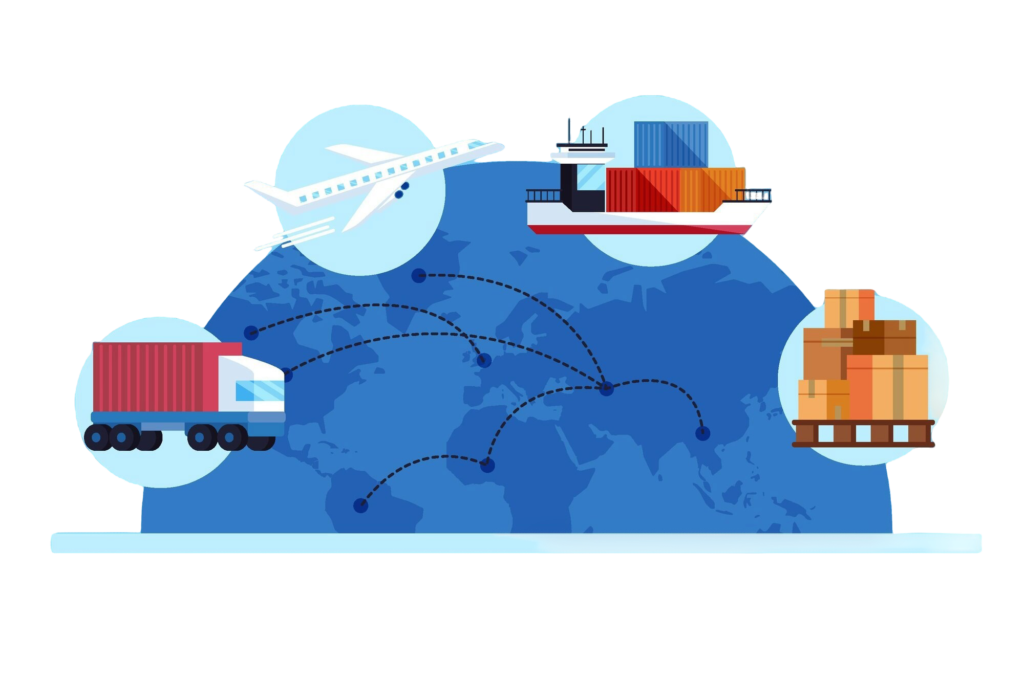Why Quality Assurance is Key in Exporting and How Quest Delivers
Quality assurance is the biggest myth in international business. For any successful international business, it’s actually the punchline. It’s not just for exporters that products makes sure to fulfil high quality standards is mere compliance; for them it means measures for trust, customer loyalty and even a competitive advantage. For us at Quest Exports, quality assurance fortifies all that we do: guaranteeing that client products are met and exceeded across each phase. In this blog, we will be discussing the significance of quality assurance in exports and how Quest Exports stands by their promise of delivering quality with every shipment. The Significance of Quality in International Trade Establishing Trust and Credibility Even in overseas markets, the customers and partners demand consistent quality in each product delivered. One poor quality experience translates to many years of reputational impairment. Therefore, quality assurance is an essential factor in establishing and maintaining trust with customers overseas. Reducing Risk Healthy products or services do not suffer from the horrors of recalls, damaged goods, or customer complaints. To exporters, this means lower risks on financial losses, legal cases and logistical inconvenience. Quality assurance guards exporters from problems that may be expensive and mar the transaction process and its long-run success. Better Customer Satisfaction When such products meet or exceed customer expectations, then satisfaction and loyalty ensue. Exporting quality goods would therefore strengthen customer relationships and make more likely a repeat order, improvement in brand loyalty, and thus a very important factor for long-term growth of export business. Quest Exports Quality Assurance Commitment Our Quality-First Approach Quest Exports is committed to upholding the highest standards of quality at every stage of the export process. Our quality-first approach is deeply embedded in our company’s values and operations, ensuring our clients’ products are thoroughly inspected, tested, and certified for international trade. Key Principles of Quest’s Quality Assurance Consistency: Our products will have the same quality regardless of the shipment size or the destiny it will be delivered to. Transparency: The clients have a clear view of our processes regarding quality assurance so that they know their products meet the international standards. Continuous Improvement: Ongoing review and enhancement of our quality assurance methods for new standards and best practices involved in global trade. How Quest Exports Maintains Quality in All Shipping Outputs Strategic Product Inspection Each product that is shipped is inspected ensuring it reaches the target market with the quality and specifications that it is designed to meet. Our inspections encompass visual inspection and performance check to ensure that all these products effectively serve their specific purposes for use. Our List of Inspection Procedure Includes: Physical Appearance Check: Assessing for any apparent flaws that assure all products shipped look attractive and undamaged. Performance Testing: With respect to any product where functionality testing is required, we ensure that the performance criteria are met and are within the anticipated standards set. Final Inspection Check: Right before packaging, every item is checked for perfection in order to dispel all chances of the product being returned, which may evoke dissatisfaction. Global Standard Conformity Quest Exports keeps abreast of every international quality standard and regulatory requirements for each of our served markets. Such commitment includes adherence to the standards of ISO, CE marking for products sold within the boundaries of Europe, FDA approval for food and health products, and more. We satisfy the needs of compliance with such standards so that clients can enter the global market with confidence. Some of our Standards Are: ISO Certifications: We operate strictly through ISO standards, wherein all the processes are bound to international quality, safety, and efficiency standards. CE Marking and Other Certifications: We support clients in getting the relevant certifications, which are a sign of quality and adherence to the specific market. Updated Regulatory Knowledge: Our team is aware of all the changing global regulations that will guide our clients away from many compliance issues and leapfrog ahead of competition. Technology-Driven Quality Control Technology Deploys Accuracy as well as Efficiency Quest Exports employs technology in every process of quality control to ensure accuracy, as much as possible avoid human error, and enhance efficiency. Through the adoption of technology, we not only automate the quality control process but also ensure greater consistency and reliability in every shipment that is exported. Technological Tools Used by Us in Our Quality Control Automated Inspections: We make use of digital tools to automate some parts of the inspection for accuracy and repeatability. Real-Time Tracking: Our customers will be in a position to track quality assurance stages of their shipment, giving them added ease of mind and clarity. Data-Driven Insights: We collect data at every single stage of quality control, continuously improving the processes and giving us a chance to reply to trends or issues proactive. Benefit: Quality control becomes faster and more accurate through technology. It, therefore, makes it possible for us at Quest Exports to easily meet the lofty standards our clients expect from us. Training and Expertise of Our Quality Assurance Team Experienced Quality Professionals Ensuring Excellence Quality assurance at Quest Exports is driven by a team of seasoned professionals who are experts in global trade standards. Our staff is trained to spot problems early, resolve them effectively, and ensure that every product is aimed at the requirements of the target market. Quality Team Expertise Includes: In-depth knowledge about product standards: Our people are well aware of the details of any product variety so that relevant standards can be applied during inspection. Training for up to date: We keep our quality assurance team on their toes about the latest happenings in industry and new regulations as well as evolving in-house quality assurance best practices. Troubleshooting: Our quality professionals are adept at identifying problems early and resolving them quickly, thus any issues are dealt with before products leave the warehouse. A dedicated quality unit at Quest Exports ensures that the product is of good quality; that means the client will have confidence in every single shipment coming out of
Why Quality Assurance is Key in Exporting and How Quest Delivers Read More »






